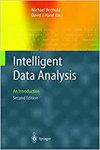Asymmetric multilevel interactive attention network integrating reviews for item recommendation
IF 0.8
4区 计算机科学
Q4 COMPUTER SCIENCE, ARTIFICIAL INTELLIGENCE
引用次数: 0
Abstract
Recently, most studies in the field have focused on integrating reviews behind ratings to improve recommendation performance. However, two main problems remain (1) Most works use a unified data form and the same processing method to address the user and the item reviews, regardless of their essential differences. (2) Most works only adopt simple concatenation operation when constructing user-item interaction, thus ignoring the multilevel relationship between the user and the item, which may lead to suboptimal recommendation performance. In this paper, we propose a novel Asymmetric Multi-Level Interactive Attention Network (AMLIAN) integrating reviews for item recommendation. AMLIAN can predict precise ratings to help the user make better and faster decisions. Specifically, to address the essential difference between the user and the item reviews, AMLIAN uses the asymmetric network to construct user and item features using different data forms (document-level and review-level). To learn more personalized user-item interaction, the user ID and item ID and some processed features of user reviews and item reviews are respectively used for multilevel relationships. Experiments on five real-world datasets show that AMLIAN significantly outperforms state-of-the-art methods.基于评论的非对称多层次互动关注网络
最近,该领域的大多数研究都集中在整合评分后的评论来提高推荐性能。然而,仍然存在两个主要问题:(1)大多数作品使用统一的数据表单和相同的处理方法来处理用户和项目评论,而忽略了它们的本质差异。(2)大多数作品在构建用户-物品交互时只采用简单的串联操作,忽略了用户与物品之间的多层次关系,可能导致推荐性能不理想。在本文中,我们提出了一种新的非对称多层次互动注意网络(AMLIAN),该网络将评论整合到项目推荐中。AMLIAN可以预测精确的评级,以帮助用户做出更好更快的决定。具体来说,为了解决用户和项目评论之间的本质区别,AMLIAN使用非对称网络使用不同的数据形式(文档级和评论级)构建用户和项目特征。为了学习更加个性化的用户-物品交互,我们分别使用用户ID和物品ID以及一些处理过的用户评论和物品评论的特征来建立多层关系。在五个真实数据集上的实验表明,AMLIAN显著优于最先进的方法。
本文章由计算机程序翻译,如有差异,请以英文原文为准。
求助全文
约1分钟内获得全文
求助全文
来源期刊

Intelligent Data Analysis
工程技术-计算机:人工智能
CiteScore
2.20
自引率
5.90%
发文量
85
审稿时长
3.3 months
期刊介绍:
Intelligent Data Analysis provides a forum for the examination of issues related to the research and applications of Artificial Intelligence techniques in data analysis across a variety of disciplines. These techniques include (but are not limited to): all areas of data visualization, data pre-processing (fusion, editing, transformation, filtering, sampling), data engineering, database mining techniques, tools and applications, use of domain knowledge in data analysis, big data applications, evolutionary algorithms, machine learning, neural nets, fuzzy logic, statistical pattern recognition, knowledge filtering, and post-processing. In particular, papers are preferred that discuss development of new AI related data analysis architectures, methodologies, and techniques and their applications to various domains.
 求助内容:
求助内容: 应助结果提醒方式:
应助结果提醒方式:


